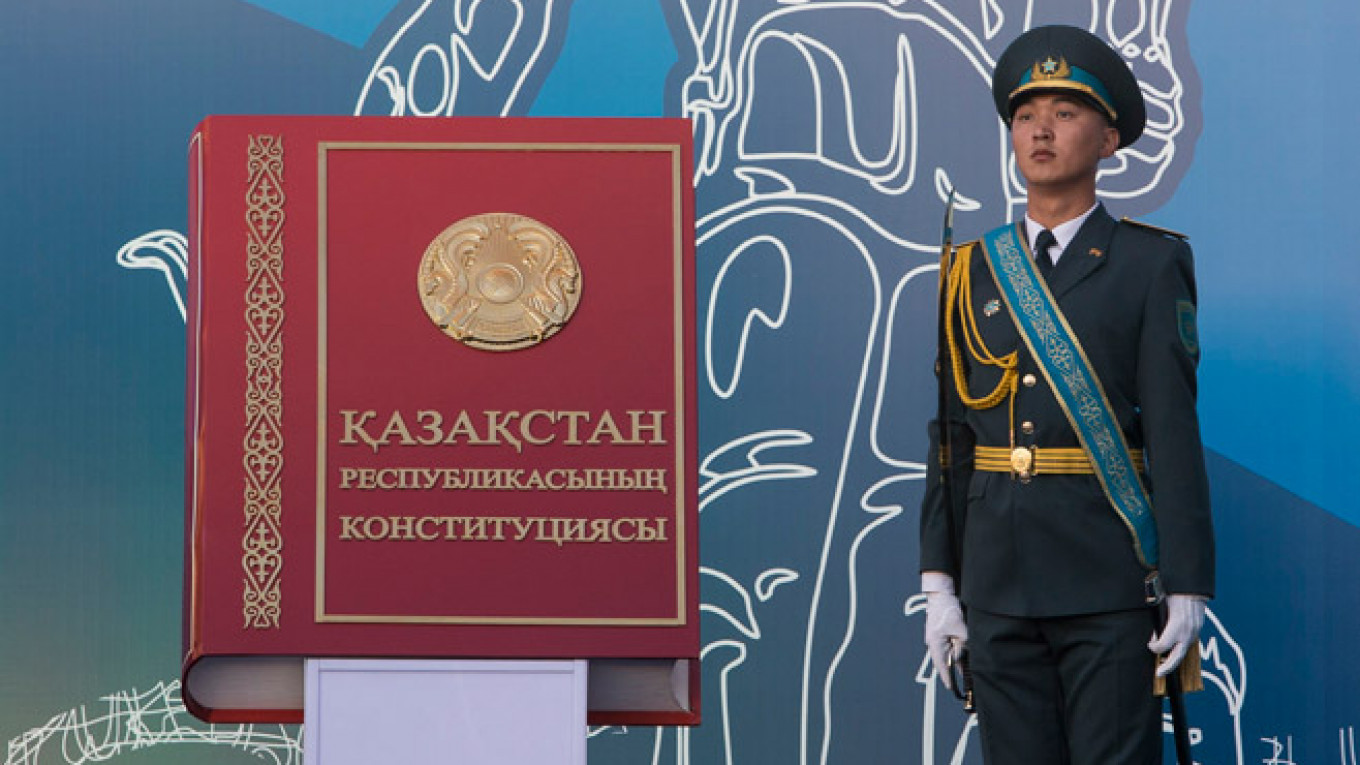Late last month, certain voices began calling for a rethink of Ukraine's potential path. Instead of moving toward a Finlandization that many had hoped for, it would be better, some thought, for Ukraine to begin mimicking Kazakhstan.
To be sure, there have been reasons to congratulate parts of Kazakhstan's post-independence maneuvering. Led by President Nursultan Nazarbayev for the past 25 years, Kazakhstan has managed to attain some of the strongest economic growth in the post-Soviet space. The country contributed to NATO operations in Afghanistan, earned the 2010 OSCE chairmanship, and has tossed its lot into landing the 2022 Olympic Winter Games.
When discussing a potential Ukrainian repositioning toward Kazakhstan, some also cite Kazakhstan's record of ethnic comity.
Some 20 percent of Kazakhstan's population are ethnic Russians, gathered largely along the regions bordering Kazakhstan's former colonizer, and while there were small spouts of Russian separatism in the 1990s, the country's ethnic Russian population has been largely peaceable for the past two decades.
But scratch the surface, and you'll quickly find that Kazakhstan presents a model that Ukraine would do well to avoid. Astana has gouged civil society out of its social sphere. Media rights are a farce. Political opposition is all but nonexistent. The "domestic peace preserved" has come at a terrific cost — just as it has been in Turkmenistan and Belarus, both of whom, according to this line of thought, can offer Ukraine inspiration.
Nor is Kazakhstan a rock-solid model for domestic stability or foreign policy success. There have been quasi-pogroms against Chechens and mob assaults on Uzbeks, while Russian President Vladimir Putin made ominous comments on Kazakhstan's statehood at the Seliger Youth Forum last month.
A planted question at the forum fabricated a Kazakh nationalistic threat to ethnic Russians that is all but nonexistent. While there has been substantive push back from Kazakhstan against Putin's Eurasian Economic Union, the claims of rising nationalism are laughable. Ethnic Russians, by and large, support Nazarbayev's policies and show scant interest in Russian irredentism.
But it wasn't simply the planted question that piqued concerns in Astana. Through his response, Putin made the oblique observation that, prior to Nazarbayev, Kazakhs had never had any experience with statehood. The state and Nazarbayev, the allusion continued, were but one. And when time came for the 74-year-old to transition to a successor, Russia may be forced to offer some form of aid — and, as we've seen in Putin's past bombast, protection for an enfeebled Russian minority.
This rhetoric — the combination of a lack of statehood and a fabricated threat to a persecuted Russian population — mirrors the Kremlin's language on Ukraine. It doesn't matter that Kazakhstan has accommodated its ethnic Russian population more than any other non-Russian post-Soviet state. It doesn't matter that the actual threat to ethnic Russians in Kazakhstan is as nonexistent as the neo-Nazi shadow swirling around Ukrainian President Petro Poroshenko.
But it's one more reason why those calling for Ukraine to turn toward Kazakhstan would be best served by rethinking their entire line of logic. Kazakhstan has seen its civil space desiccated and its political opposition drained — and its apparent ethnic balance stands both hollow and threatened.
This is a direction Ukraine would do well to avoid. And now that Putin has seemingly turned his sights on Astana, fabricating another rationale for Russian intervention where none existed prior, avoiding Kazakhstan's model should become that much more obvious.
Casey Michel is a graduate student at Columbia University's Harriman Institute.
A Message from The Moscow Times:
Dear readers,
We are facing unprecedented challenges. Russia's Prosecutor General's Office has designated The Moscow Times as an "undesirable" organization, criminalizing our work and putting our staff at risk of prosecution. This follows our earlier unjust labeling as a "foreign agent."
These actions are direct attempts to silence independent journalism in Russia. The authorities claim our work "discredits the decisions of the Russian leadership." We see things differently: we strive to provide accurate, unbiased reporting on Russia.
We, the journalists of The Moscow Times, refuse to be silenced. But to continue our work, we need your help.
Your support, no matter how small, makes a world of difference. If you can, please support us monthly starting from just $2. It's quick to set up, and every contribution makes a significant impact.
By supporting The Moscow Times, you're defending open, independent journalism in the face of repression. Thank you for standing with us.
Remind me later.








